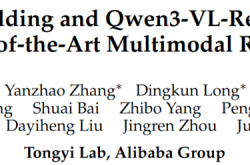Xiaomi Affirms Commitment to Developing 5G Baseband Chips, Exclusively for Flagship Models
![]() 05/28 2025
05/28 2025
![]() 597
597
Let's face it, Xiaomi has been making waves since the introduction of the 15S Pro. The Xuanjie O1 chip captured everyone's attention first, despite some lingering skepticism. Fortunately, Xiaomi has garnered significant support, with many recognizing the remarkable achievement given its rapid rise. However, Xiaomi's next move could be even more significant and challenging.
Recently, Xiaomi Group's President, Lu Weibing, revealed in a conference call that following its success with flagship chips, Xiaomi aims to delve into baseband chip development. The company has already commercialized 4G baseband chips and is now setting its sights on 5G. This endeavor is ambitious, given the numerous failed attempts by others, including Intel, which, despite Apple's support, could not develop a satisfactory 5G baseband and ultimately disbanded its team.

Even Apple, after numerous setbacks, only recently integrated a self-developed 5G baseband into the iPhone 16e, at a considerable cost. Xiaomi's pursuit of this path will undoubtedly face considerable difficulties, primarily due to the numerous unavoidable patent barriers. As Apple has experienced, Xiaomi will need to navigate these challenges adeptly.
Given the difficulty in bypassing these barriers, Xiaomi has two primary paths: obtaining necessary patents through cross-licensing or direct purchase. Personally, I believe Xiaomi will need to employ both strategies to successfully develop 5G baseband chips. Simply purchasing everything outright is not feasible, as evidenced by Apple's struggles despite its vast resources.
To secure cross-licenses, Xiaomi must present a robust patent portfolio of its own. Since Lu Weibing has made this announcement, it is safe to assume that Xiaomi is well-prepared. In addition to a high patent quality, the quantity of patents is also crucial. If this aspect is lacking, financial compensation may become necessary.

In essence, Xiaomi must demonstrate sufficient strength to potential partners to facilitate mutually beneficial exchanges. Furthermore, Xiaomi is starting from a high point in this field, as Lu Weibing clarified that the company has no plans to develop non-flagship chips. This indicates that Xiaomi will focus solely on high-end chips and bypass less challenging options. Why this decision? I speculate that it aims to balance cooperation with partner companies and recognizes that Xiaomi's current capabilities cannot yet cover all devices in the chip sector, a feat no manufacturer has achieved.
Lu Weibing also noted that Xiaomi's self-developed flagship chips will not have a high installation rate across devices initially. Essentially, they will be utilized in Xiaomi's digital series S models. Regarding future delegation to Redmi for cost-saving measures, the possibility exists, especially considering Redmi phones also employ top-tier chips like the Snapdragon 8 Ultimate Edition.

Personally, I am optimistic about Xiaomi's ability to develop 5G baseband chips. What do you think?








